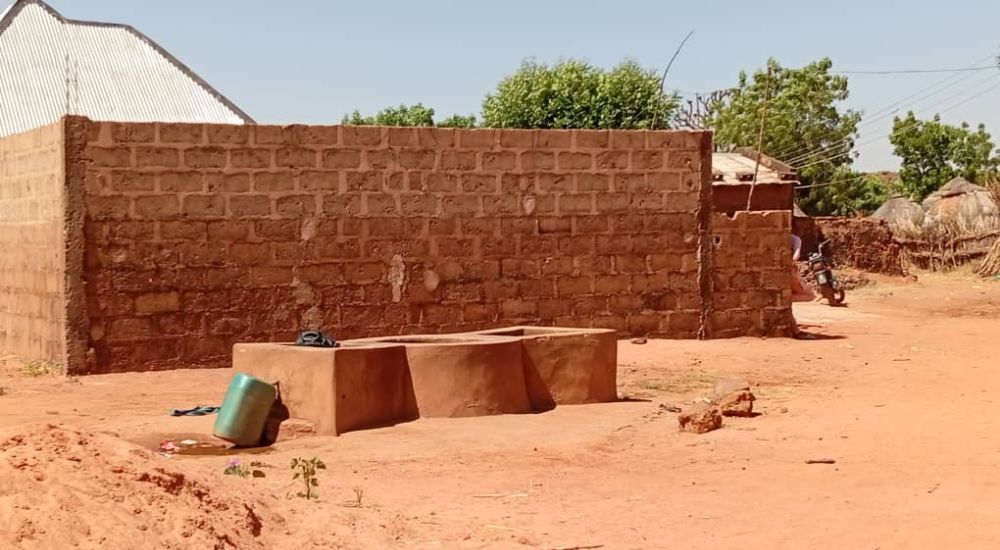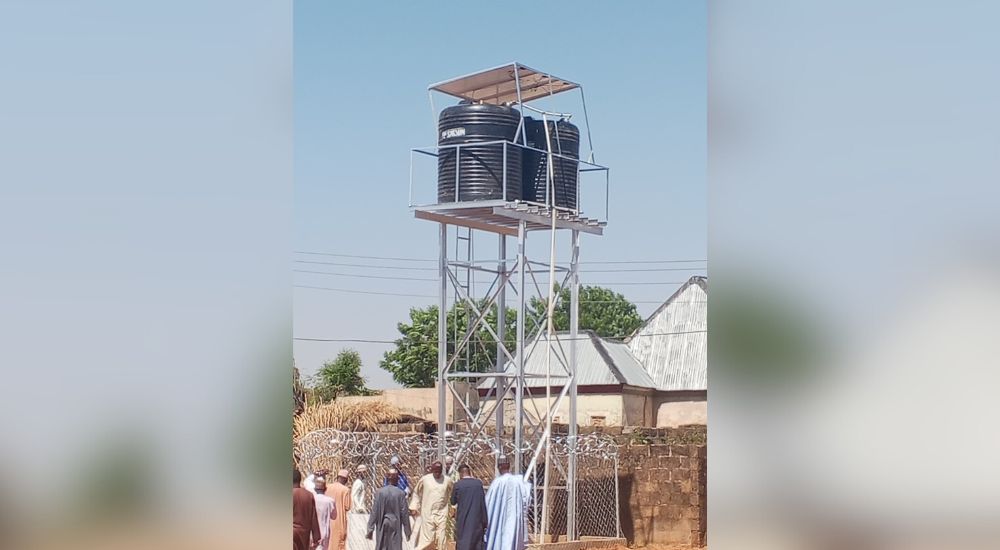Across remote communities in Sokoto State, the struggle for clean water is easing as Governor Ahmed Aliyu’s administration expands solar-powered water projects to bridge years of neglect.
For residents like Baba Abubakar,an 85-year-old of Baga, the difference between exhaustion and relief now flows from a borehole just meters from home.
He recounts for decades, fetching water in Baga village of Wamakko Local Government Area of Sokoto State, was an everyday struggle that consumed time, strength, and dignity.
The community’s only water source, which is a decade-old well served as a lifeline for hundreds of residents, most of them Fulani pastoralists who depend on water for both domestic use and livestock survival.
Abubakar still remembers the days when water meant walking for hours under the scorching sun. Every morning, he would travel several kilometres to fetch water for his herd of cows, a journey that took not less than three hours.
“Before I could come back, I was already exhausted and could not do any other work,” he recalled, his voice carrying both relief and nostalgia.
Advertisement
For years, this was the daily reality for many families in Baga village and neighbouring settlements. The old well, shared between humans and animals, often dried up during the dry season, forcing residents to trek even farther or buy from commercial water vendors at high prices.
A NEW DAWN
That story began to change in 2024, when the Sokoto State Government under Governor Ahmed Aliyu Sokoto launched a large-scale solar-powered water supply project across rural communities.
The impact of the state government under Governor Ahmed Aliyu was touched the village, where a 60,000-litre solar-powered borehole was installed to provide a reliable and sustainable source of clean water for over 2,000 residents and hundreds of livestock.
The project, according to many residents interview during a media tour of amny completed projects by Aliyu’s administration under its “Rural Water and Sanitation Expansion Initiative,” is aimed to close the gap in access to safe drinking water in underserved communities.
Advertisement
Since its installation, the burden of water scarcity has eased significantly. One of the residents, Aishatu Inuwa, a 70-year-old mother of eight, said the project has been nothing short of a relief.
“Before this project, I used to spend N500 daily on commercial water vendors,” she said, smiling with visible relief. “And when I didn’t have money, I had to go to the well myself. With my old age, drawing water was not easy. But now, I just go to the borehole and get clean water without stress.”
Across her wrinkled face spreads the glow of newfound comfort,the kind that comes when a basic need is finally met.
BEYOND BAGA VILLAGE
Baga is not alone in this transformation. Similar solar-powered boreholes have been commissioned in over 120 rural communities across 15 Local Government Areas of the state, including Tangaza, Goronyo, Isa, Gudu, and Silame.
The State Ministry of Water Resources said these projects were collectively providing access to over 450,000 litres of potable water daily, serving an estimated 380,000 rural dwellers.
Advertisement
Governor Ahmed Aliyu Sokoto, during one of the project inaugurations, emphasized that ensuring clean water access is central to his administration’s Nine-Point Development Agenda, particularly its focus on health, rural development, and human welfare.
“No citizen of Sokoto State should suffer because of lack of clean water, our people in rural areas deserve the same dignity and comfort as those in urban centres.”
The projects are powered by renewable solar energy, reducing maintenance costs and ensuring steady operation even in off-grid areas.
A TOOL FOR DIGNITY
Experts say access to clean water has ripple effects beyond hydration. It reduces the prevalence of waterborne diseases, improves school attendance for girls (who often fetch water for families), and enhances agricultural productivity, said Abdullahi Aminu, a public commentator.
A report by the UNICEF Water, Sanitation, and Hygiene (WASH) Program indicates that as of 2023, only 52% of households in Sokoto State had access to basic water services. With the current expansion, local authorities say that figure is expected to rise to over 70% by 2026 if ongoing projects are sustained.
Community leaders have noticed the shift, with Alhaji Bello Gidado, head of Baga village, described the intervention as “a blessing that restored dignity.”
“Our women now have time for other activities instead of spending hours fetching water. Even our children can go to school early,”
Despite progress, challenges remain, including maintaining the solar installations, training local technicians, and ensuring equitable water distribution.
However, with continued government commitment and community participation, Sokoto appears to be on the right path toward achieving Sustainable Development Goal 6: Clean Water and Sanitation for All.
For villagers like Baba Abubakar and Aishatu Inuwa, what once felt like a dream now flows freely; clean, abundant, and close to home.
“Access to clean water is the basis of good living, and now, life has returned to Baga”.Abubakar said, his eyes fixed on the shiny metal tank that now towers over his village.
Similarly, in Sokoto North Local Government, the inspection covered key infrastructure projects undertaken by Governor Ahmed Aliyu and the Local Government Chairman Jamilu Umar Gosta, including the reconstruction of Kofar Taramniya Gate and Roundabout, concrete walkways in Gidan Igwai, solar-powered streetlights, and the Runjin Sambo road network, linking the busy Ramin Kura Market
In Sokoto South, the team inspected projects executed under the leadership of Council Chairman Mallam Ya’u Muhammad Danda, including the construction and renovation of Islamiyya schools, installation of solar-powered streetlights, and construction of concrete pathways.
COMMUNITY OWNERSHIP
Comrade Usman Muhammed Binji, Chairman, Nigeria Union of Journalists (NUJ), Sokoto State Council who led journalists on the tour emphasized the importance of community ownership in sustaining government investments, noting that protecting and maintaining public facilities is a shared responsibility.
“Residents must take full advantage of and safeguard the developmental projects in their areas. Only collective responsibility can ensure these facilities serve future generations,” he said.
Binji however commended both tiers of government for granting journalists access to assess the projects, stressing that the initiative was aimed not only at highlighting achievements but also at strengthening accountability, transparency, and public participation in governance.
Beneficiaries expressed satisfaction with the ongoing developments, commending both state and local governments for delivering people-centered projects that address community needs.
They assessed that state government projects such as the renovation and re-equipping of the Yar’akija Primary Health Centre, the Mabera and Tamaje road networks, and the Tamaje Water Scheme, among others, are well prioritied to improve living conditions of rural dwellers in the state.
The exercise, which began with visits to Sokoto South and Sokoto North Local Government Areas, was organized to provide journalists with firsthand insight into the utilization of public resources, as well as to promote transparency and accountability in governance.


